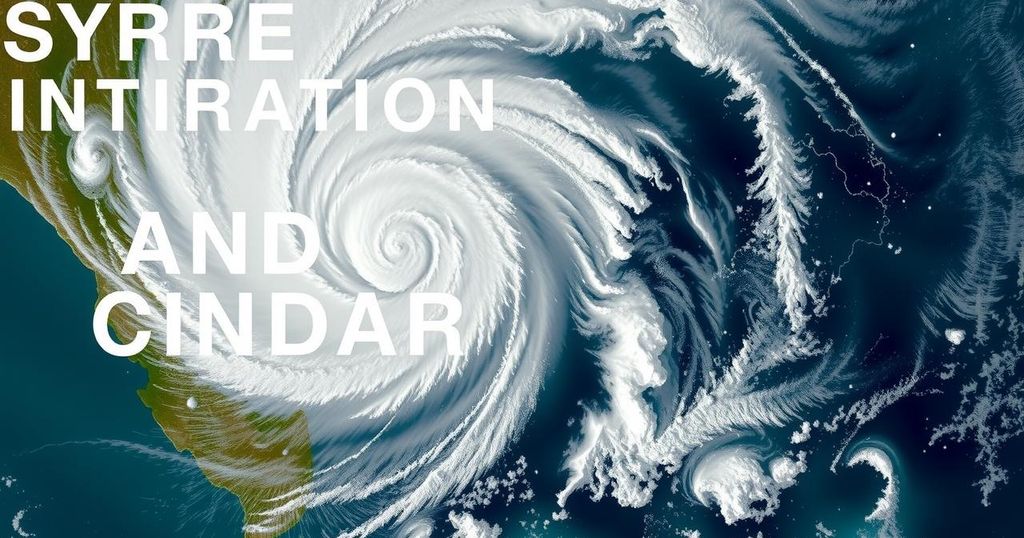Cyclone Chido Devastates Mozambique, Leaves Trail of Destruction in Mayotte
Cyclone Chido struck Mozambique, causing severe damage and fatalities after impacting Mayotte. The storm generated extensive rainfall and high winds, leading to infrastructure destruction and loss of communication in Pemba. UNICEF is actively working to assist affected individuals, as severe weather conditions are expected to continue in the region.
Cyclone Chido made landfall in Mozambique early on Sunday, unleashing destructive winds and heavy rainfall after wreaking havoc in Mayotte, a territory in the Indian Ocean administered by France. Reports indicate that the cyclone intensified while crossing the Mozambique Channel, affecting the vicinity of Pemba approximately 40 kilometers (25 miles) to the south. Aderito Aramuge, the director of the National Institute of Meteorology, confirmed the significant impact on Pemba and expressed concern over the communication blackout since early morning hours.
UNICEF announced its commitment to support the populations affected by Cyclone Chido, reporting considerable damage to infrastructure, including homes, schools, and health facilities. The organization is collaborating with government authorities to ensure the delivery of essential services continues uninterrupted despite the devastation. According to estimates from the Mozambique weather service, the storm is projected to produce wind gusts up to 260 kilometers per hour and over 250 millimeters (10 inches) of rainfall within a 24-hour timeframe.
Visual reports from Pemba depict extensive rainfall and trees bending under strong gusts of wind, alongside initial assessments of structural damage to residences and buildings. Unfortunately, the cyclone has already claimed the lives of at least 14 individuals in Mayotte, as confirmed by a security source, indicating the storm’s tragic toll.
Cyclones pose a significant threat to coastal regions, often leading to extensive destruction and loss of life. The Mozambique Channel, situated between Madagascar and the African mainland, is frequently affected by tropical storms, making countries like Mozambique particularly vulnerable. As evidenced by recent events in Mayotte, where Cyclone Chido initially struck, such natural disasters demand prompt humanitarian responses to mitigate long-term impacts and provide relief to those affected. The critical involvement of organizations such as UNICEF underscores the urgent need for coordinated efforts in disaster relief.
In summary, Cyclone Chido has significantly impacted Mozambique, particularly the city of Pemba, following its destructive path through Mayotte. The cyclone has caused widespread damage to infrastructure and has resulted in loss of life. As recovery efforts begin, UNICEF and other organizations are mobilizing to ensure that essential services continue amid the aftermath of this severe weather event. The authorities continue to monitor the situation closely as challenging weather conditions persist.
Original Source: www.barrons.com




Post Comment